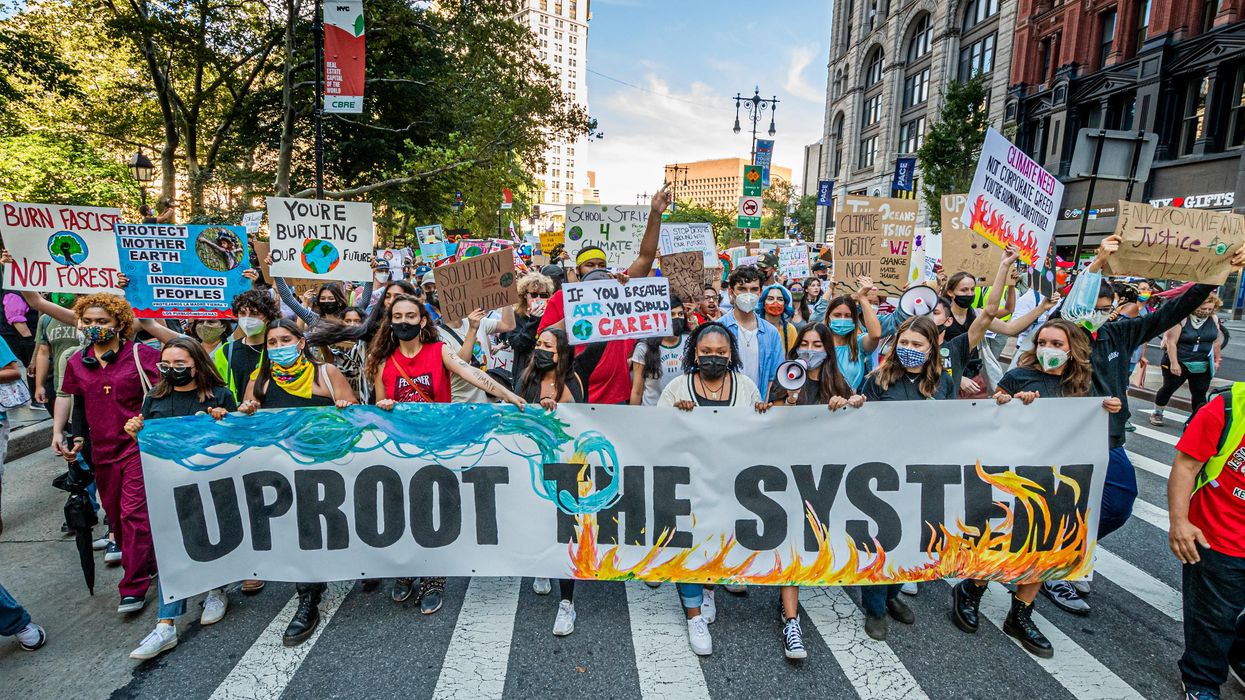The 2020 election not only saw a significant increase in youth voter turnout, but also prompted more young people to become active in social movements. However, continued growth will require additional support in the form of resources and collaboration, researchers found.
Half of people under 30 voted in last year's election — up from 39 percent in 2016, according to research from the Center for Information and Research on Civic Learning and Engagement at Tufts University. And more than a quarter of Americans ages 18-24 reported participating in at least one march or protest last year — a big jump from just 5 percent of young people in 2016.
The rise in both youth activism and youth voter turnout in 2020 led CIRCLE researchers to examine how the two trends connect. They found that young people who participated in social movement organizations gained more knowledge about the electoral process and voting rights.
For the first part of its research, which was mostly qualitative, CIRCLE identified and studied five social movement organizations, focused on climate change and gun violence issues, that were geographically and racially diverse: Sunrise Movement, Youth Climate Action Team, March for Our Lives, GoodKids MadCity and Palmetto Youth Movement.
Although some of the people involved in these groups believe that voting alone is not sufficient to effect change, they do largely agree that voting is extremely important.
More than half of people who participated in these organizations said they learned a lot about how government elections affect their community, how to impact government policy and how to educate voters. A majority of young people also reported they learned a lot or a moderate amount about voting rights, how to get involved in local elections, how to help others register to vote and how to persuade people to vote.
While young people became more civically engaged last year, they also faced a number of challenges, including the Covid-19 pandemic and a national reckoning on racial injustice.
"Amidst these reiterative crises of health, social isolation, economic downturn and systemic racism, the young people in our study displayed outstanding resilience, mobilizing quickly to meet the needs of their communities and developing new solidarity practices," the CIRCLE researchers wrote in the report, released last week.
However, despite their resiliency, young activists still reported high rates of burnout, limited funding and complexities in organizational structure. To mitigate these issues, CIRCLE researchers offered several recommendations to voter engagement groups led by older people, funders and other organizations that collaborate with young people.
For voter engagement organizations, researchers recommended continuing collaborations with youth-led groups and amplifying their work, while also exploring new partnerships. Funders are encouraged to make more long-term investments to help with sustainability. And other organizations should look for ways to integrate "get out the vote" efforts with other issues, as well as offer leadership development opportunities for young people.
The second part of CIRCLE's study used quantitative analyses to show the links between youth voter turnout and youth activism. Researchers found a sizable increase in protest participation during Donald Trump's presidency, with a sharp spike in 2018. However, protest accessibility was not the same across the country. Young people in the Deep South and Great Plains had to drive on average more than 75 miles to the nearest in-person protest.
Simply having a protest did not have a measurable effect on voter registration, researchers found. Places where there were more protests about climate change did see modestly high rates of youth voter registration, though.
However, following the killing of George Floyd by police and the nationwide protests that ensued, voter registration among 18- and 19-year-olds saw a modest, but significant uptick.
To better tap into protests as a means for getting young people to the polls, CIRCLE researchers recommend organizers facilitate voter registration efforts and follow up with participants about voting in upcoming elections. Researchers also noted that many young activists may already be likely to vote, so organizers should partner with schools to target individuals who are less engaged with politics.




















Trump & Hegseth gave Mark Kelly a huge 2028 gift